#aristotelean
Explore tagged Tumblr posts
Text
nice how they placed the footnote at the bottom of the post = footpost

59K notes
·
View notes
Text

I want to kill him so bad
0 notes
Text

A love spell, from a Pseudo-Aristotelean treatise (Dhakhira Iskander IO, BL Islamic 673)
2K notes
·
View notes
Text
Jayce Talis' Joycean Epiphany
Tracking the textual similarities between James Joyce's A Portrait of the Artist as a Young Man and Jayce's character journey, specifically in Arcane season 2, episode 7.


As time goes on, my appreciation for Jayce's arc only grows, and I think episode 7 captures the best of the showrunners' narrative concision and cohesion. Within that perfect storm I noticed a lot of similarities between Jayce and James Joyce's main character, Stephen Dedalus, who spends the 1916 classic shedding attachments to the material world in pursuit of ultimate freedom, including monikers of creed and country and friendship, captured in his famous epiphany.
This isn't a perfect mapping, but comparing Stephen's epiphany to Jayce's meeting with Mage Viktor is pretty enlightening/interesting! More below!

The Joycean Epiphany
Stephen Dedalus' epiphany occurs in the last third (ish) of A Portrait of the Artist as a Young Man and happens as follows: Stephen, consumed with anxiety, loneliness, and confusion about his place in the world, finds himself wandering toward the ocean. He steps knee-deep inside and sees the figment of a woman out of reach, who he describes as a "strange and beautiful seabird" who awakens him to "the wild heart of life." The Bird Woman inspires Stephen to shake off material attachments to nationality and religion, as well as to break off personal relationships in order to arrive at his true self, which he must do in isolation. This is the most egregiously brief synopsis possible...
Jayce's journey in Arcane does, in fact, follow a very normal, non-epiphanic arc in general; I'm not merging Stephen and Jayce together here. Instead I want to call attention to the visual cues and specific plot points that truly give me pause and think/hope they were intentionally building this parallel.
The Irish Coastline, the Undercity Grey
In Portrait, there is great emphasis attached to the sea's physicality as Stephen enters the waters. He's permeated a barrier as the tide wrestles with him:
"In a few moments he was barefoot...and, picking a pointed salteaten stick out of the jetsam among the rock, he clambered down the slope of the breakwater."
Jayce also permeates, with a lot of struggle, pain, and anguish, a physical barrier/obstacles - the Grey, which we see as a thick green miasma throughout the Undercity in this timeline, and the Fissures he's fallen into. Interestingly enough, Jayce also has a pointed stick that's figuratively eaten by the Anomaly. Not salt, by any means, but each character takes up a damaged implement at the onset of their journey.


The Epiphanic Figures
In Portrait, Stephen is drawn into the water towards the woman who inspires his epiphany: "A girl stood before him in midstream, alone and still, gazing out to sea."
Within the Grey, Jayce encounters Viktor as the mage, staring at him with his face obscured. When he turns and leaves, he prompts Jayce into action, thus spurring the epiphany, the necessary movement through the Grey.

Upon his approach, Stephen describes his epiphanic woman: Her long fair hair was girlish, and touched with the wonder of mortal beauty, her face..."

"...and when she felt his presence and the worship of his eyes her eyes turned to him in quiet sufferance of his gaze, without shame or wantonness."

In Portrait, Stephen never reaches his Bird Woman; she remains out of reach, just like his ultimate freedom will remain until he commits to his quest for self-discovery. Similarly, Jayce and Mage Viktor never touch, despite Viktor and Jayce's established physical intimacy.
The Quest
Stephen spends the remainder of Portrait systematically shedding what he feels are restraints to his true self. If you haven't read Portrait, there is a lot, a lot, a LOT of syncretic philosophies wedged inside, Platonic, Aristotelean, Aurelian, etc., to showcase Stephen coming into his own intellectually and emotionally. But the way he describes this quest, when speaking to his best friend, Cranly, is key when comparing him to Jayce:
"You made me confess the fears that I have. But I will tell you also what I do not fear. I do not fear to be alone or to be spurned for another or to leave whatever I have to leave. And I am not afraid to make a mistake, even a great mistake, a lifelong mistake and perhaps as long as eternity too."
Jayce, inspired by his own Bird Woman, the Mage, sets out on his quest of ultimate solitude, wherein he traumatically relives his past mistakes.


But now, with Mage Viktor's wisdom and an understanding of what's to come, Jayce finally becomes a powerful and independent force. He doesn't rely on his betters or outside approval. He attacks Mel for her past treatment of himself and Viktor as tools/investments for her will. He will leave behind the comfort and privilege of his old life. In order to do what needs to be done to save Piltover, Jayce is willing to make those mistakes, to sustain on his own, etc., when he was never willing to do so before.
"Alone, Quite Alone"
Nobody asked, but my favorite scene in Portrait is the last dialogue between Stephen and Cranly, whom Stephen frequently describes as his closest friend, and whose opposition to Stephen's departure he considers the most. Try as he might to be sympathetic, Cranly struggles to understand why Stephen can't relent and warns him of what will happen to Stephen if he takes on his quest: "And to not have any one person...who would be more than a friend, more even than the noblest and truest friend a man ever had."
Cranly tells Stephen that "you need not look upon yourself as driven away...or as a heretic or an outlaw." He invites him to stay, to return.

And Stephen is grieved by this: "A voice spoke softly to Stephen's lonely heart, bidding him go and telling him that his friendship was coming to an end..."

"...Yes; he would go. He could not strive against another. He knew his part."

In killing Viktor as the Herald, Jayce has fully accepted loneliness and the necessary suffering it incurs on others. Guided by Mage Viktor, his own Bird Woman epiphany, he plays his part in the fate set before him.
In this moment, the Herald Viktor is Jayce's Cranly: "Stephen watched [Cranly's] face for some moments in silence. A cold sadness was there..."

"...He had spoken of himself, of his own loneliness which he feared."

*To note, Stephen's epiphanic realization amounts to isolation for his own benefit, whereas Jayce endures isolation and commits these "mistakes" (killing Viktor) for the greater good - very important difference!
Regaining Cranly
This same idea comes across every time I post about Arcane season 2: subversive endings. And while my opinion of the season has been on the downturn, I will never cheapen the shock and awe of the Mage Viktor reveal, and I will always find new ways to break it down and appreciate it.
In Portrait, Stephen leaves Ireland, his religion, and his loved ones behind. Stephen asks Cranly to clarify what he means by his talk of loneliness: "'Of whom are you speaking?' Cranly did not answer." In the essential modernist way, Stephen seeks out the independent soul amidst the masses.
Jayce, meanwhile, uses his newfound autonomy and sense of self for the greater good. He followed his epiphanic figure as Stephen did, and abandoned his Cranly, for a higher goal than self actualization.

And that's where this comparison just about falls apart.
Because Jayce and Viktor are "inextricably bound," the fundamental crux of the epiphany - its independence - isn't possible. Jayce guides his Cranly away from "his own loneliness which he feared." He invites Viktor to partake in his epiphany and they complete the quest together.

the end <3
I'm excited about this comparison! And I know I'm offering a very cursory read of Portrait here. I actually wrote about it for my latest conference CFP so it's fresh on the mind. And a lot of these comparisons can be chalked up to Joyce's just General Narrative Influence, that he refined this exact mode of quest -> self discovery -> loneliness, but we're here to have fun, not to submit to a journal lol.
#this was very fun to write! i've been sitting on it for a while#i got sleepy so no secondary sources#even though i have lots for my paper about Birds and Nets in joyce and murdoch lol#hopefully i'm not becoming a one-trick pony i just love writing abt this sm#uhhh please leave me your ideas and feedback!!!!#jayce talis#viktor arcane#jayvik#arcane#arcane s2#arcane season 2#arcane analysis#arcane meta#viktor nation#viktor propaganda#also i wish so badly that there were Any Visuals whatsoever for Portrait#so i could make better comparisons#i hope this layout and structure makes some sense
86 notes
·
View notes
Text
she says that “she employs a combination of clown physicality […] and peripatetic zaniness” and peripatetic means like. nomadic. i had just never heard it used in such a context…?
does helen shaw actually know what she’s talking about because she uses peripatetic in a really weird way that i only just noticed
4 notes
·
View notes
Note
“a belated attempt to grapple with Aristotle” this is a very common myth. The Church Fathers who left behind writing were often philosophers or schooled in Greek philosophy. While it’s true that the original works of Aristotle were not in circulation, much of their education would have relied on commentaries of Aristotle, studies of Aristotle, or works that built on Aristotle in some way. Reading any Church Fathers text on the trinity or Christology will reveal this. I wont fault you on this one though, because many people do get confused on what the knowledge of Aristotelean thought was pre-13th century, and many will erroneously tell you that St Thomas Aquinas was the first Aristotelean Christian. He wasn’t, but it’s a common misconception.
oh he doesn't have to be the first, but if you're looking at the influence of Aristotle on Christianity or at Catholic philosophy in general, he's surely the place to start.
12 notes
·
View notes
Text
Heavy Lies the Crown: Rhysand, greatness, and the pressures of power
Or: the librarian’s daughter, former playwright, licensed counselor mashup of my nightmares dreams because I am vast, I contain multitudes.
No content warnings and no real HOFAS spoilers, I don't think, other than that he's in it but I feel like you know that by now. Spoilers for Breaking Bad (lol).
---
In working on my current fic (on ao3 here!) I've been thinking a lot about Rhysand and how he really goes off the rails in ACOSF and HOFAS. It's easy to chalk it up to poor writing, but I like the challenge of trying to make it make sense. What are Rhys’ motivations, truly? What would explain the vast array of heinous shit he does the text tells us is justified?
Rhys is shown over and over to be quite Machiavellian ('ends justify the means' dude, who was maybe writing satire). It's easy to list the times he shows this. The 50 year Velaris hostage situation. The bargain UTM with Feyre. The Weaver's cottage. Stealing the Book from Tarquin. CLARE BEDDOR. Infiltrating people's minds. Torture. Assassination. Allying with Kier. Concealing his wife's medical information. Being an ass to people in general. According to Mr. Machiavelli, any action is warranted if it the goal it achieves is morally important enough.
It seems like Rhys can justify anything to himself if he believes it will serve the greatest good at the end of the day. He does so many things with the air of “it’s for your own good” or “you’ll understand why one day” but that day never.. comes? Not yet anyway, which begs the question: is he that unself-aware, or is there a longer game he’s playing that all of these minor skirmishes are leading up to? What if he knows what's coming? And what kind of cause or threat would feel so great he could justify everything he does up to this point?
Okay I'm gonna talk about Aristotelean literary structure, please don't leave me.
The idea of a tragic hero is a character whose downfall is inevitable but who fights against it anyway. Hamlet is a classic example of a tragic hero, Oedipus being the de facto first, Walter White from Breaking Bad a more modern version. We see Walt learn he’s going to die in the first episode, in the middle he does a bunch of stuff to prevent his physical death (cancer) and metaphorical death (failure/obscurity), and then both his body and reputation die in the last episode as a direct result of his attempts to avoid fate. It’s blissful Aristotelean symmetry. *chef’s kiss*
Every tragic hero has hamartia, more commonly known as a ‘fatal flaw’. In Hamlet, his fatal flaw is procrastination, and his delays create space for all kinds of the fuck shit he was trying to prevent. It’s important to note that hamartia is by design a neutral term - not so much a flaw, but a trait, motivation, or decision that sets off the chain of events the character is trying to avoid. Tragedies have occurred equally from too much love as too much hate, and doing nothing is just as much a decision as doing something. The word itself comes from the Greek for ‘to miss the mark’. To try and fail, the backbone of tragedy.
One of the most common hamartia is hubris, a modern synonym for arrogance but which more specifically means an outsized belief in one’s ability to affect and control the future. Well-known tragic heroes taken down by hubris include our boy Walter White, Tony Soprano, Viktor Frankenstein, Achilles, Jay Gatsby, Kendall from Succession. It exists in real life, too: Lance Armstrong is a perfect example of a modern tragic hero brought down by hubris. And what do all these men have in common? Power, via money, fame, strength, the state, intellect, violence etc.
I’ve been enjoying looking at Rhysand through this tragic hero lens because while it doesn’t really make him more sympathetic, it does make his actions easier to understand logically, which is its own kind of humanization. If Rhysand is aware of a prophesied or fated event sometime in the future and is pulling the cosmic strings now, it must be incredibly important, like annihilation-level important, which is so much pressure.
So he grows to maturity with an understanding that he will one day have to face this intense evil that could completely destroy his world, and it plants in him a hubris. He believes that his immense power grants him a certain amount of influence automatically. And honestly, is he wrong?
And this is where it’s important to think about how power makes people weird. Power gives people a false sense of confidence in their actions and choices, because their status and privilege protect them from so many more consequences. In this way it’s easy to see how someone can get a big ego - no one is stopping me, so I must be doing well! Or: everything is going well for me, so I must be really killing it! I know I feel that way in the first tingles of hypomania, but hypomania is fundamentally a distortion of reality and I believe so is power.
Power not only gives people confidence but also access to make decisions for others. They begin to think they should share the success they’ve found by leading and guiding others to see how great it can be if you do what they say. Just look at one of those cringe 'billionaire morning routine' videos to see what I mean. It’s a very patronizing form of altruism, because the leader genuinely believes they have the people’s interest at heart. And I use the word patronizing intentionally - leaders have often referenced feeling paternal towards their people, Winston Churchill + FDR, 'God the Father'. Power and fatherhood have been linked for a long time. And direct from our girl Wikipedia, "paternalism is action that limits a person's or group's liberty or autonomy and is intended to promote their own good".
I was talking with a girlfriend of mine recently about how I think some men don’t have the experience of other people depending on them in a significant way until they get married and/or become fathers. Like, afab and femme people learn very early to be considerate of others, to think about how others feel, to act in ways that keep others happy, etc. This plants in us a sense of duty to perform in ways that please others, to smile, to create comfort and provide caretaking in every environment we enter. So by the time we get to marriage and motherhood, we already know how to put others’ needs before our own because we’ve been doing it from the jump.
For men, however, this can be a completely novel experience. And it seems like it's SO HEAVY FOR THEM. George ‘Father of his Country’ Washington just wanted to go back to Virginia the whole time he was President. So many men talk about the pressures of being a provider and their families depending on them in a way women don’t, and I think it’s because for the first time others truly depend on them and they don’t know how to handle it.
In response, they either shove down their emotions as patriarchy demands and have a midlife crisis, or they abdicate that responsibility and go completely absent physically and/or emotionally to continue living for themselves. (Obviously there are good men and dads out there, and bless you if you’re lucky enough to know, have, or be one.)
And this aspect of power feels relevant because from the text it seems like Rhysand is unraveling. Between Feyre, the baby, the Trove, Nesta and being threatened by her power, Koschei, Bryce, the whole High King shit - I think he’s starting to crack under the pressure. And honestly, I’m kind of surprised it didn’t happen before now.
According to Aristotle, the tragic hero must:
Be significant (virtuous/capable/powerful/important etc.)
Be flawed
Suffer a reversal of fortune.
Rhysie boy definitely ticks the first two. I wonder what it would look like to get to three? I don’t think Sarah has the balls, but it’s definitely enhanced my reading experience and given me a lot of interesting things to think about.
Okay that's all I've got. Love ya, see ya soon xx
#prythian university#acotar#acosf#rhys critical#sjm critical#tragic hero#lit crit#i love thinking way too deeply about things
47 notes
·
View notes
Text
There is a Classical Greek word that corresponds broadly to the English term ‘impiety’: asebeia. [...] In the pseudo-Aristotelean On Virtues and Vices we find an explicit definition of asebeia as ‘error (plemmeleia) concerning gods and daimons or concerning the departed, and parents and homeland’. Polybios provides a very similar definition: ‘Asebema is to do harm in matters concerning the gods, parents and the dead’.
"Impiety" by Hugh Bowden, in The Oxford Handbook Of Ancient Greek Religion edited by Esther Eidinow and Julia Kindt
5 notes
·
View notes
Text
the world if we had brechtian hadestown instead of aristotelean hadestown

3 notes
·
View notes
Text
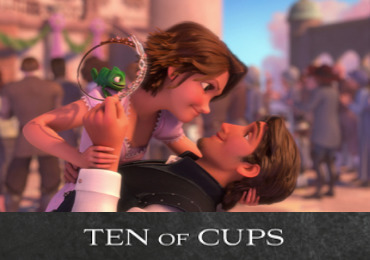
The Ten of Cups is Happiness, not momentary happy, but Aristotelean Happiness, the culmination of your life as a whole is great, you have a wonderful spouse, the house you wanted, success, your dreams are fulfilled and you see the light of how great your life is.
6 notes
·
View notes
Note
Also, Blade, Jing Yuan and Dan Heng are neither really daddy nor mommy to me. They're an aristotelean mesotes between these two, but in different ways
Jing Yuan is the facebook mom and the dad that takes the kids everywhere (e.g. to work, to school, to the supermarket). His kids will hate him when they're in puberty
Dan Heng is the overworked single mom and the diy mechanic dad. Also "hey, I was watching that" dad
Blade is an (evil) step-mom mommy and the beer drinker athlete dad that has the magical power of saving the kid when they do stupid shit
-⛩️
100%
9 notes
·
View notes
Text
prrty ironic reading a book abt how jews for centuries refused to center methods of abstract logic in their interpretations, in direct counter-distinction to aristotelean procedures
then seeing jews look back to 100 years ago when a significant amount of deeply assimilated bourgeois jews devoted themselves intensely to 'science' 'rationalism' 'abstraction', and holding that up as if it were the quintessential, unmistakable evidence of their jewishness
consciously or not, those dudes were definitely trying to be jewish(colonized) aryans(colonizers).
16 notes
·
View notes
Note
Random question of the day!
If you could choose one element to control, what element would you choose?
This is such a good question!! Thanks for asking me. <3
I think if we are looking at the traditional, Aristotelean elements in physics (water, earth, wind, and fire), I would greatly prefer water. I think it's the most versatile, and it's definitely the scariest. I thought fire might be my favorite, but that is very much a one-trick pony (in my mind).
If we are instead considering the six Aristotelean elements of drama (which are plot, character, thought, diction, spectacle, and song), I would absolutely choose diction. One, I'm a linguist by trade, and two, I'm in love with the way people speak to each other and how our own voices come out in our writing and our characters.
If you want to discuss control over the elements of the current periodic table, I think I would choose carbon. It would give me control over all living (carbon-based) things, perhaps?
Fascinating!! Hope this answered your question. <3 <3
4 notes
·
View notes
Text
EP. 6 RECAP
spoilers under cut read on if you want to hear my unhinged thoughts:
1. THE HISTORY OF THE GALAXY PARTS 1, 2, and 3?????? (“with 1 being the best part”) I’m sorry is this foreshadowing to the movie that we’re getting that tells the story of the beginning of the Jedi??? freaking out
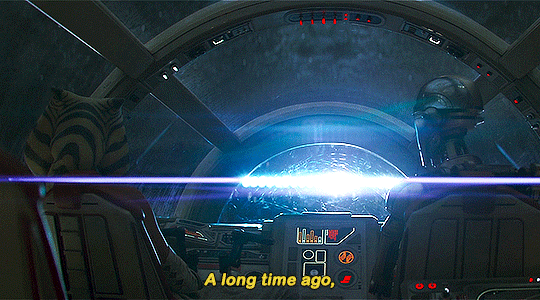
2. I am so sad about Ray Stevenson. The world was deprived of a true talent and a fascinating character and the story he won’t get the chance to tell 😭 a loss of a talented human and a great storyteller.
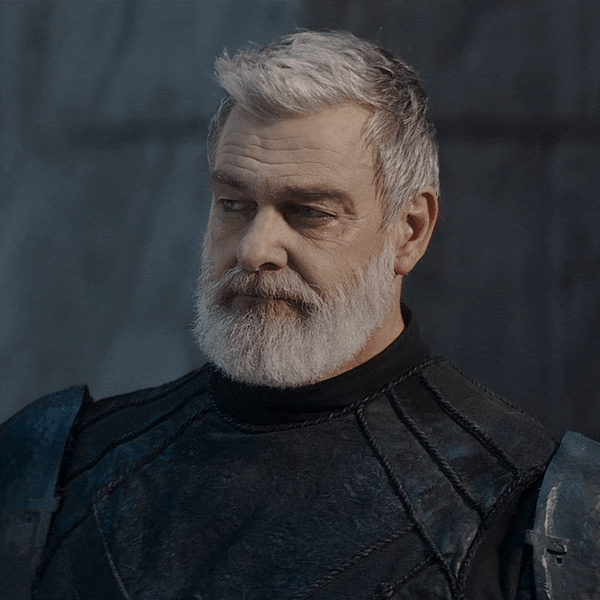
“What I seek is the beginning” WHAT THE FUCK I’m so invested in this, thank god for Dave Filoni and his commitment to the well-planned, longform story (yes I’m subtweeting the sequel trilogy)
“Perhaps they flee a power greater than their own” LIKE WHAT OMG BAYLAN STOP
3. These nightsisters are a bit too “Dune” for my taste. I mean I recognize that Star Wars has copied Dune from the very first movie and also they are super cool but did they have to talk with that echo and be called “Great Mother”? it’s a little on the nose lol
4. THRAWN. THRAWN’s SHIP. The fucking KINTSUGI STORMTROOPERS OMGOMGOMG the QUALITY of the storytelling, the characterization, OMG
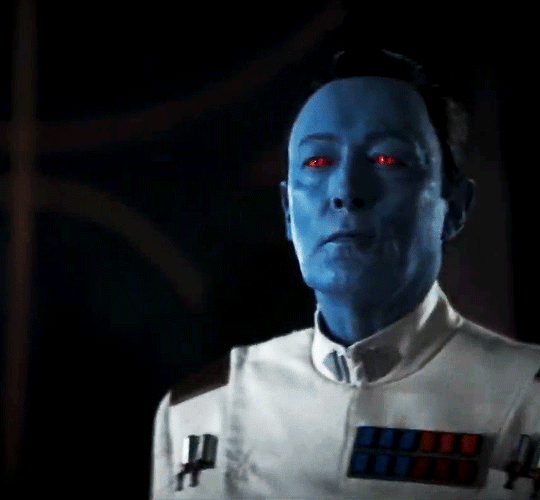
I’m sooooo glad they kept Lars Mikkelsen, Thrawn wouldn’t be Thrawn without that voice. and the Kintsugi is so in character for him, his appreciation for art, I love it so much.
5. ALSO, Enoch in the Bible DOESN’T DIE? (he is taken to Heaven and escapes death) so I feel like there has to be something significant about that. And the stormtroopers are clearly loading some kind of COFFINS onto the ship? Resurrection shit??? The Book of Enoch, as far as I know, is an apocryphal text—is that a signifier that whatever takes place in this other galaxy is sort of apocryphal compared to the original Skywalker saga? And, lastly, the book of Enoch is an APOCALYPTIC text—AHHHH what does it all mean, I’m so goddamn curious (this shit is back to the symbolic, Aristotelean tragedy Star Wars that I LOVE)
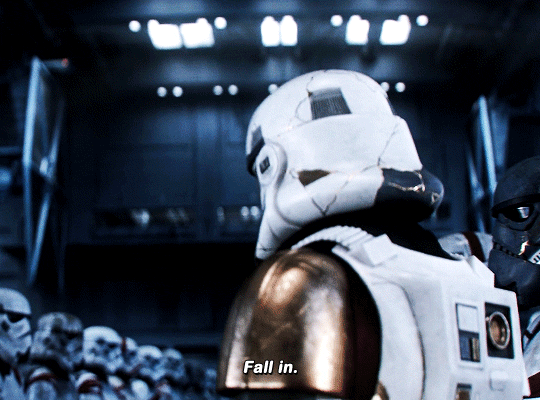
6. Baylan saying Ezra “comes from a breed of Jedi trained in the wild”
and Shin responding, “like me? 🥺” 😭😭😭😭
7. EZRA IS HERE EZRA IS LIFE EZRA IS EVERYTHING (also why is he kind of fuckinf hot? LOL fuck me honestly) did not have a crush on Ezra Bridger on my 2023 bingo card but here we are
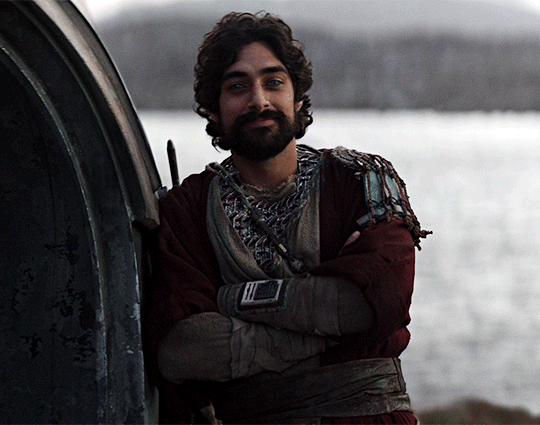
I’m so happy he’s back and I feel like for the sake of the story Thrawn can’t make it back to the original galaxy, but if that’s the case can’t I please get a ghost crew reunion in some capacity 😭 I don’t know how this would make sense. but I have a feeling this is the start of a bigger story (and I wish Baylan could be a part of it 😭😭😭)
bonus I love the space turtles that look like little old men travelers this episode was so FULL of greatness wow. I watched this last week and just now rewatched it so get ready for my thoughts on the new ep TONIGHT if you read this whole thing you deserve a treat and a nap
#star wars#ahsoka#ahsoka spoilers#ezra bridger#sabine wren#thrawn#baylan skoll#shin hati#star wars rebels#sw rebels#sw ahsoka
11 notes
·
View notes
Text
Formation in the Aristotelian and Thomistic tradition
The example of a bronze statue has been given as an elucidation of causality in Aristotelean-Thomistic tradition. From the raw matter of bronze a form is being produced, for instance, the figure of St. Benedict. The artist corresponds to the efficient cause that creates the figure, and the final cause is the respective purpose of this creation. The passage from potentiality to actuality is the…
0 notes
Text
film adaptation of a novel generally is the wrong way to go & I think many people instinctually know this (“book was better” common refrain - films generally suck more at telling the same story); tv season obviously more suited to the scope but bastards who finance seek to risk less by funding a single 2hr block of product rather than e.g. 8hrs spread across 8 eps. cowardly decision! & one that could only be made by miserable bloodless capitalists who care less about art than the bottom line.
the play, obviously, is the better literary analogue to the feature film. indeed I find that a film which adheres more or less to the aristotelean unities often (ofc not always) will be a more satisfying watch, tho’ of these I would consider unity of action to be the most important. none of which I expect is inventing the wheel, but I just saw a post which touched on this subject & didn’t want to clutter it with my diary entry here
#die hard: unity of time unity of place unity of action#ofc many of the ~greatest films of all time ~ do not adhere to this schema#but they r also made by extraordinarily capable hands?#it’s not that all film can be is ‘like a play’ it’s just that inasmuch as people treat it as a literary form#(as opposed to a purely audiovisual one)#its closest analogue is the play. and not the novel#musings#op
0 notes